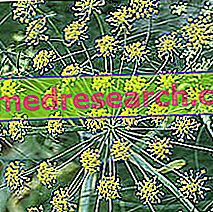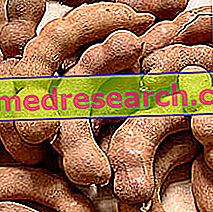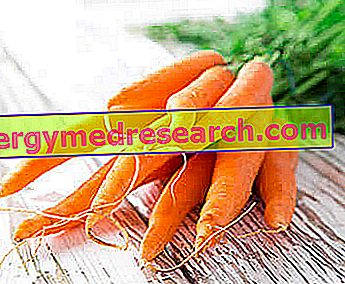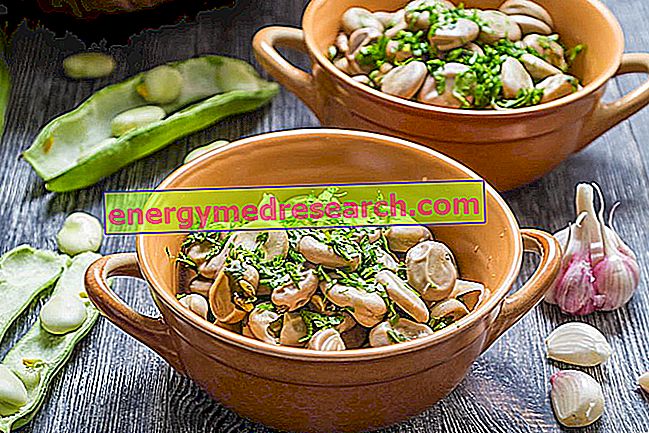
Scientific name
Foeniculum vulgare
Family
Apiaceae (Umbelliferae)
Origin
Mediterranean region
Used Parts
The drug is made up of dried fennel fruits, present in the Official Pharmacopoeia
Chemical constituents
- Essential oil (transanetol, estragole and fencone)
Fennel in Herbal Medicine: Properties of Fennel
The drug consists of dried fennel fruits - present in the Official Pharmacopoeia - from which the essential oil is obtained; but the seeds and the essential oil extracted from the ripe fruits are also used.
Chemical constituents
The chemical constituents of the essential oil of fennel vary - above all from the quantitative point of view - depending on whether it is extracted from the fruits of bitter fennel ( F. vulgare var. Vulgare ), or from the fruits of sweet fennel ( F. vulgare var. dulce ).
The main components of fennel essential oil are:
- Trans-anethole (bitter fennel: 50-75%; sweet fennel: 80-90%)
- Fencone (bitter fennel: 12-33%; sweet fennel: 1-10%)
- Estragolo (bitter fennel: 2-5%; sweet fennel: 3-10%)
- cymene
- Limonene
- Alfa-pinenes
- Gamma-terpenes
- Terpinoli
A similar argument can be made regarding fennel seeds. The main components of bitter fennel seeds are the trans-anethole, the fencone and the estragole (in the same quantities indicated above). While, among the main chemical constituents of sweet fennel seeds we always find the trans-anethole, fencone and estragol (in the same quantities listed above), to which are added flavonoids, fatty acids and traces of hydroxycumarins.
Properties of Fennel
Fennel essential oil has an anti-spastic activity without reducing the physiological intestinal peristalsis; the final result is a better progression of the enteric content, a lower formation of large gas bubbles and a reduced stay and transit time in the gastrointestinal tube.
For this reason, fennel can be considered a good herbal remedy with prokinetic and spasmolytic activity, indicated in spastic states of the digestive tract, hiatal hernia, flatulence, slow digestion and constipation.
Biological activity
Fennel is attributed digestive and expectorant properties. More precisely, these actions are attributable to the oil extracted from the mature fruits of the plant and its seeds.
In fact, both oil and fennel seeds are able to promote intestinal motility and, at high doses, also exert an antispastic action on the digestive tract. For this reason, the use of fennel has been officially approved for the treatment of dyspeptic disorders.
Furthermore, the trans-anethole and the fencone - compounds both contained in the seeds and in the essential oil of fennel - have demonstrated the ability to inhibit the activity of the muciparous glands of the respiratory tract, thus exerting an expectorant action of the secretolytic type . In fact, the use of fennel has been officially approved for the treatment of some respiratory disorders, such as coughs and bronchitis.
Furthermore, the aforementioned molecules have also been shown to have an interesting antimicrobial activity in vitro.
Fennel against dyspeptic disorders
Thanks to its activity in promoting gastric motility, fennel can be successfully used for the treatment of various dyspeptic disorders, such as, for example, the feeling of fullness and flatulence.
If fennel oil is used, the usually recommended dose is 0.1-0.6 ml of product, to be taken after each meal.
However, for more information regarding the use of fennel for the treatment of the aforementioned disorders, please refer to the dedicated article "Care with Fennel".
Fennel against cough and bronchitis
Fennel can be used as a remedy against coughs and bronchitis, thanks to its expectorant action given by the trans-anethole and fencone contained within its seeds and its essential oil.
When the essential oil of fennel is used as an expectorant remedy, it is recommended to take 0.2 ml of product (corresponding to about 3-5 drops) in a single dose, or in divided doses during the day.
Also in this case, for more information about the use of fennel to treat the aforementioned disorders, see the article on "Treating yourself with Fennel".
Fennel in folk medicine and homeopathy
In popular medicine, fennel is used to treat skin and eye diseases, including conjunctivitis. Furthermore, this plant is also used as a remedy against fish tapeworm infestations.
In the homeopathic field, fennel is available in the form of granules or mother tinctures with indications for the treatment of digestive disorders and meteorism.
Side effects
Nausea may occur rarely
Contraindications
Avoid using fennel in case of proven hypersensitivity to one or more components and in children under 12 years of age.
Generally, pregnant women are advised not to take fennel-based preparations, however, it is always a good idea to ask the doctor for preventive advice.
Pharmacological Interactions
- hormone therapy: fennel extracts have estrogenic activity;
- Photosensitizing drugs: effect summation.
Note
It should be noted that the essential oil of bitter fennel contains a percentage of fencone between about 12 and 30%, while the essential oil of sweet fennel (which is reported in FU) contains a decidedly lower quantity between 1 and 10% maximum.



